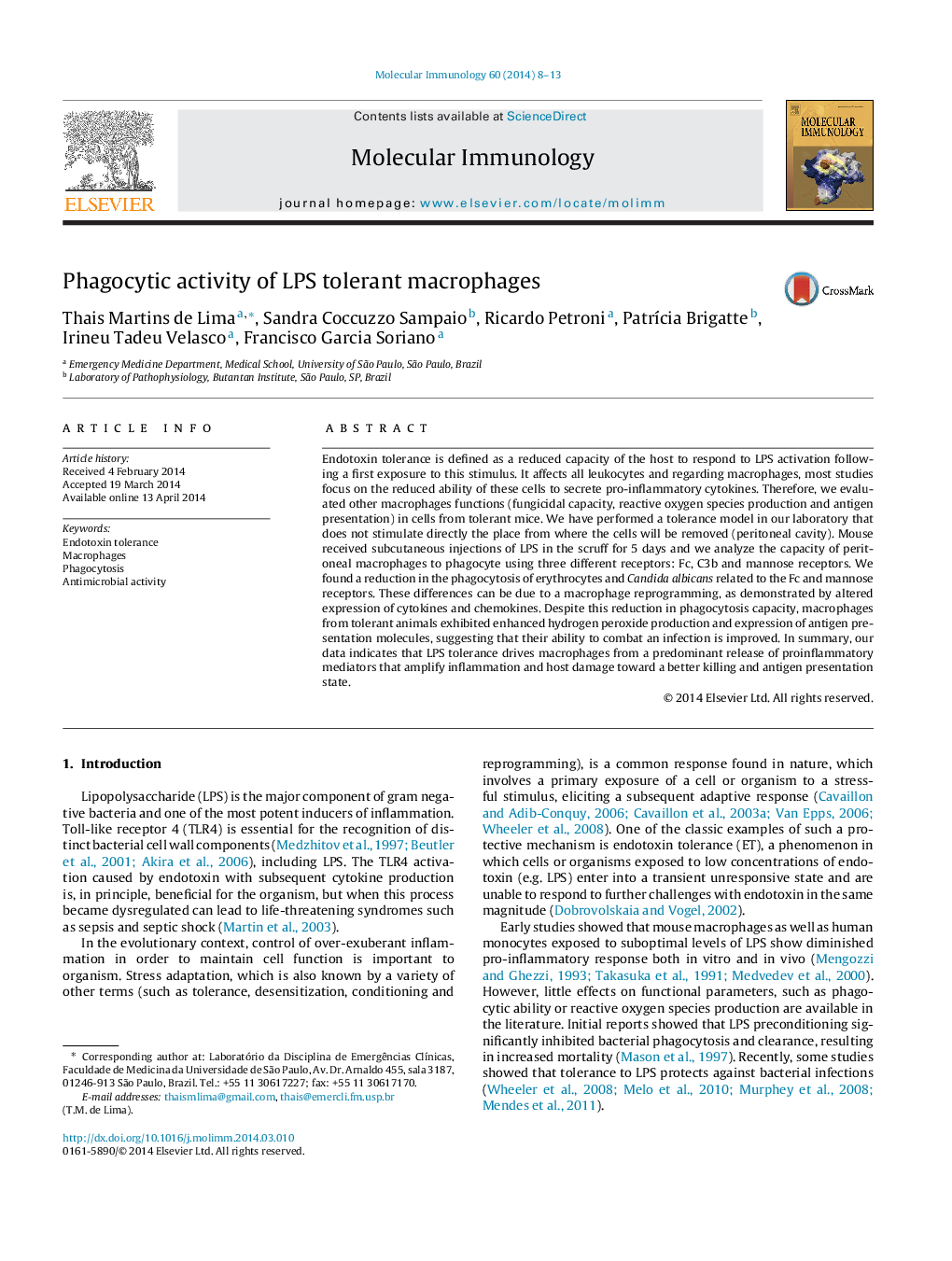| Article ID | Journal | Published Year | Pages | File Type |
|---|---|---|---|---|
| 2830833 | Molecular Immunology | 2014 | 6 Pages |
•LPS tolerance reduced the phagocytosis related to the Fc and mannose receptors.•Macrophages from tolerant mice exhibited increased fungicidal activity related to higher production of H2O2.•Antigen presentation ability of tolerant macrophages was maintained.•Expression of MCP-1 and CCR2 was stimulated in tolerant macrophages.
Endotoxin tolerance is defined as a reduced capacity of the host to respond to LPS activation following a first exposure to this stimulus. It affects all leukocytes and regarding macrophages, most studies focus on the reduced ability of these cells to secrete pro-inflammatory cytokines. Therefore, we evaluated other macrophages functions (fungicidal capacity, reactive oxygen species production and antigen presentation) in cells from tolerant mice. We have performed a tolerance model in our laboratory that does not stimulate directly the place from where the cells will be removed (peritoneal cavity). Mouse received subcutaneous injections of LPS in the scruff for 5 days and we analyze the capacity of peritoneal macrophages to phagocyte using three different receptors: Fc, C3b and mannose receptors. We found a reduction in the phagocytosis of erythrocytes and Candida albicans related to the Fc and mannose receptors. These differences can be due to a macrophage reprogramming, as demonstrated by altered expression of cytokines and chemokines. Despite this reduction in phagocytosis capacity, macrophages from tolerant animals exhibited enhanced hydrogen peroxide production and expression of antigen presentation molecules, suggesting that their ability to combat an infection is improved. In summary, our data indicates that LPS tolerance drives macrophages from a predominant release of proinflammatory mediators that amplify inflammation and host damage toward a better killing and antigen presentation state.
